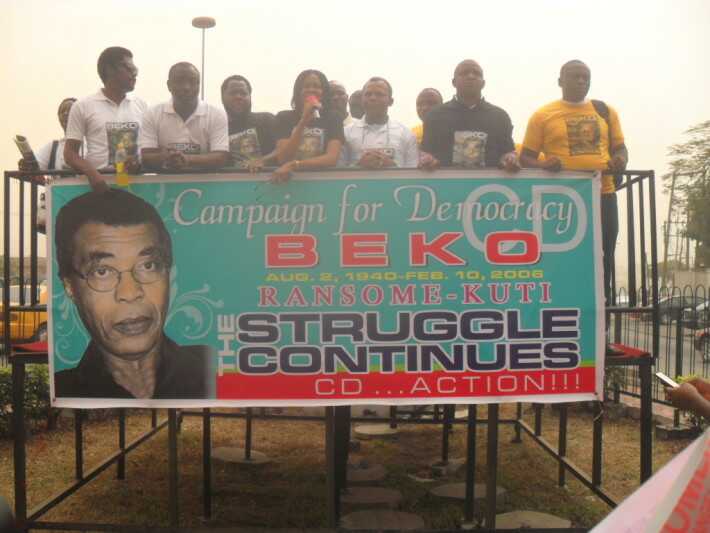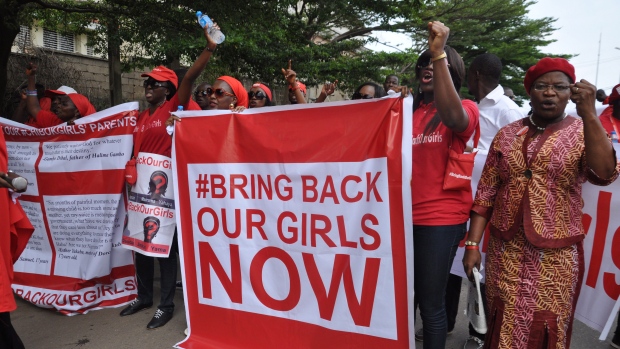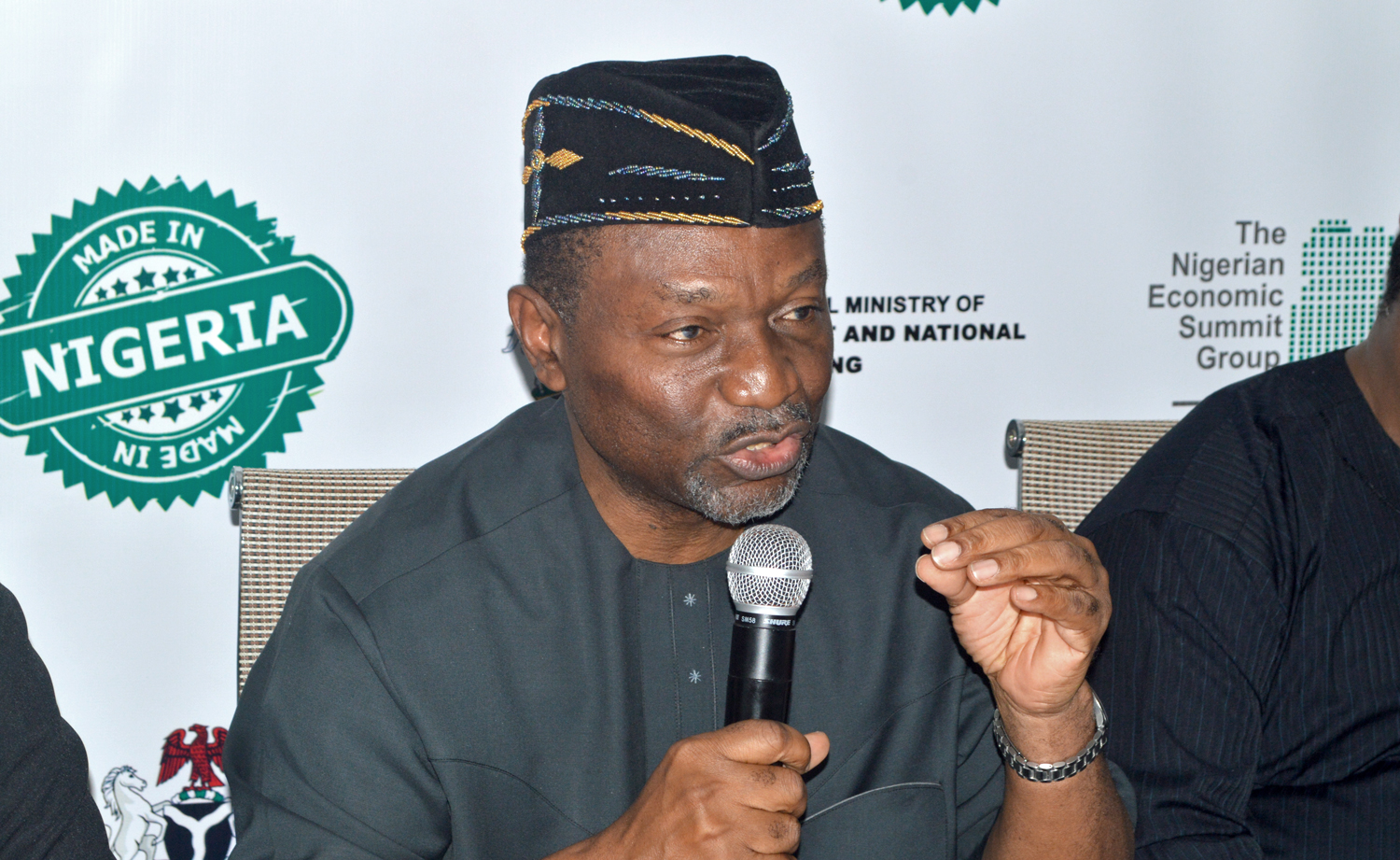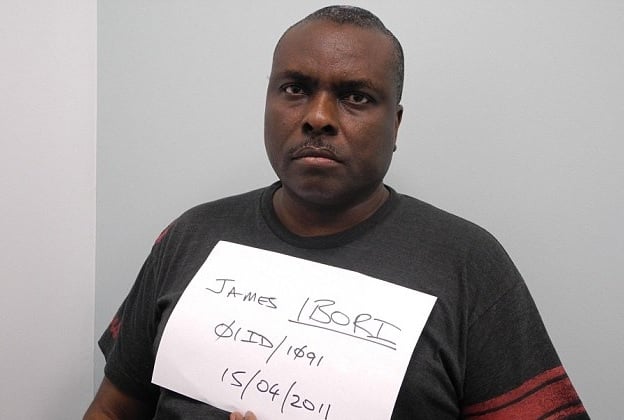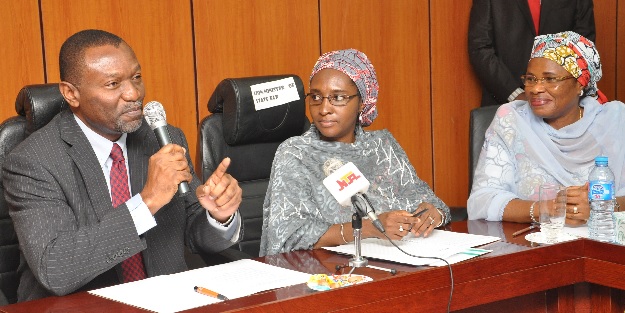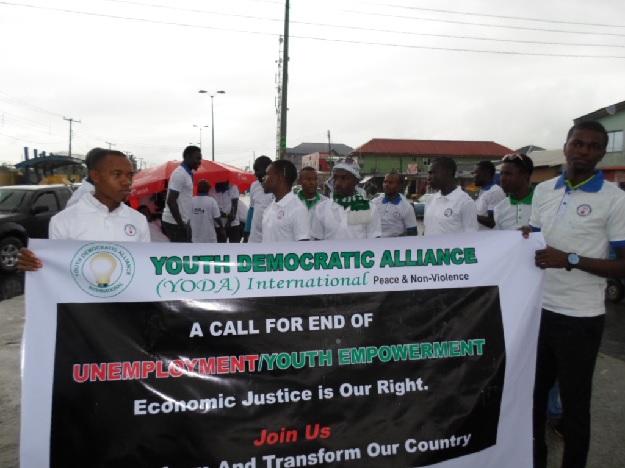In the 30s, 40s and 50s the Reverend Isaac Oladotun Ransome-Kuti and his wife, Olufunmilayo, were in the forefront of the struggle of the Nigerian people against British colonial autocracy. Their Abeokuta home served as the secretariat of the Nigerian Union of Teachers and the Nigerian Union of Women founded and led by the Kutis. Bekololari was born in 1940 by the Kutis with a silver spoon in his mouth. But like his elder brother, Fela, he never used the spoon. Early in life both of them were nurtured in the struggle against injustice and oppression. Both Beko and Fela witnessed the formation of the National Council of Nigeria and Cameroun their home in 1944. They also took part in the several street protests led by their mother which culminated in the abdication of the throne by the Alake, Oba Ladapo Ademola in 1947.
The Alake had been accused of collaborating with the colonial forces to collect excessive taxation from the Egba people. Notwithstanding that they attended their mother’s primary school and the Abeokuta Grammar School headed by their father they enjoyed no preferential treatment. Even though their father died while they were young their mother brought them up together with their elder brother, Olikoye and sister, Dolu.
Beko studied medicine at the University of Manchester while Fela studied music at the Trinity College, University of London. As undergraduates in the United Kingdom they took active part in the struggle for the decolonization of the African continent.
Upon their return to Nigeria in the 60s Beko worked briefly in the civil service before setting up his own clinic at Mushin, a stone’s throw from Fela’s Kalakuta Republic. His involvement in the Nigerian Medical Association radicalized the erstwhile docile body. He was elected the Chairman of the Lagos Branch and later deputy President of the Nigerian Medical Association. He influenced the Nigerian Medical Association to compel government to fund the health sector in the 1980s. Not unexpectedly, he as victimized and detained on many occasions as he was always held vicariously liable for doctors’ industrial actions.
Advertisement
Upon coming to the conclusion that the regular campaign for individual comrades who were detained without trial by military dictators was not sufficient Beko and other allies decided to establish the Committee for the Defence of Human Rights (CDHR). As his first president he laid a solid foundation for the human rights body. He also led the Campaign for Democracy, a coalition of human rights and pro-democracy organisations which effectively coordinated the campaign which culminated in the termination of military rule. He was detained by the Buhari and Babangida regimes while he was jailed by the Sani Abacha junta.
When we were detained in Kuje prison in 1992 and 1993 the late Chief Gani Fawehiinmi SAN was always advising Dr. Beko Ransome-kuti to stop smoking to avoid possible cancer of the lung. As predicted, Dr. Ransome-kuti died of cancer of the lung at the age of 65. Strangely, Chief Fawehinmi too died of cancer of the lung at the age of 71. Both of them could have lived much longer if the country had efficient medical facilities.
Now that Beko, Gani and other committed comrades are no longer with us the greatest tribute that we can pay them is to rededicate ourselves to the struggle against underdevelopment and the re-colonization of Nigeria by imperialism.
The progressive extraction of the civil society must quickly link up with the working class to arrest the on-going descent to anarchy and chaos by mobilizing Nigerians to take their political destiny in their own hands. This will require the urgent formation of a broad political movement of all progressive and democratic forces led by the labour movement.
Advertisement
HEALTH CONDITION OF PRESIDENT BUHARI
Last year, President Buhari announced that he was proceeding on medical leave to treat ear infection in the United Kingdom. In line with Section 45 of the Constitution the President handed over powers to the Vice President. The nation wished the President well but not a few Nigerians called on the federal government to fix the local hospitals. Although the President announced that he would undergo another medical check-up during a 10-day vacation in the UK there have been wild speculations over his state of health. The leave has since been extended on the advice of the President’s doctors, fueling more speculations. Some mischievous people have rumored the death of the President.
No doubt, a full disclosure of the President’s state of health would have put paid to the speculations but no law has been violated by the presidency. Indeed, Section 14 of the Freedom of Information Act excludes disclosure of the medical record of any citizen. However, there can therefore be no justification for the action of some irresponsible elements who have used the social media to announce the death of the President.
However, this is not surprising since one of them had actually published an advertorial during the electioneering campaign wherein he predicted that the President would die in office!
Advertisement
In the obituaries published daily in our newspapers our loved ones usually die after a “brief illness”. Majority of African people were indeed surprised when the late President Mandela announced that his first son had died of HIV.
When Fela Anikulapo-Kuti died of HIV in 1997 his children were strenuously opposed to the decision of his elder brother, Professor Koye Ransome-kuti to announce the cause of the death. As he could not convince his nephews and nieces the former minister of health assured them that he would not announce the cause of their father’s death but that of his own brother! Thus, at the press conference held by Professor Ransome-kuti at the Afrika Shrine at Ikeja, Lagos he tersely said, “Gentlemen of the press, I wish to disclose that my brother, Fela Anikulapo-kuti, who I loved dearly has just died of complications arising from HIV/AIDS.”
Until the authoritative pronouncement of Professor Ransome-kuti majority of Nigerian youths never believed that HIV was real. Although the dangerous disease has claimed thousands of lives no other family has had the courage to emulate the example of Mandela and Ransome-kuti. Indeed, for many families whose loved ones are killed by the disease or cancer it is always a case of the “enemies have done their worst.” The same hypocrisy is demonstrated when people are sick. Hence, it is not uncommon for Nigerians to say that they are very strong when they are indisposed.
Our religions and culture find a justification for promoting the superstitious belief that it is a taboo to disclose one’s state of health.
Advertisement
Our experience as a nation calls for an amendment of the Constitution so that the medical reports on the state of health of contestants are submitted to the Independent National Electoral Commission.
Having regard to the unprecedented scale of looting of the public treasury by the ruling class the mental state of contestants ought to be examined by psychiatrists.
Advertisement
Accordingly, the Freedom of Information Act should be amended to allow interested members of the public to obtain medical records of public officers.
THE RIGHTS OF NIGERIANS TO HEALTH
Advertisement
Instead of wasting precious time over the state of health of the President we should join issue with the State over the parlous state of medical facilities in the country. In other words, the Nigerian people should take advantage of the President’s health to demand the provision of adequate funds to fix our hospitals which General Buhari and his colleagues described as consulting clinics in 1984. The President should be made to know that the consulting clinics have since become mortuaries for the masses. The practice of allowing poor citizens to die of preventable diseases while top public officers and rich private citizens are allowed to travel abroad for medical treatment can no longer be justified. In line with the letter and spirit of the National Health Act, 2014 public officers should no longer be permitted to travel abroad for medical treatment at public expense.
Since Nigerian citizens have the right to health by the combined effect of section 17 of the Constitution and article 16 of the African Charter on Human and Peoples’ Rights Act is high time our medical facilities were fixed while drugs are made available and affordable. The usual excuse for not equipping our hospitals is that funds are not available. With respect, it is a matter of priority and not poverty. The life span of an average Cuban is 79 years while ours is 52. Cuba is a very poor country but education and health are free for all citizens.
Advertisement
The greatest killer disease in Africa is malaria. Not less than a million Africans are lost to malaria fever every year. But the scourge of malaria can be substantially eliminated if the leaders are prepared to muster the political will to ‘offend’ the manufacturers of anti-malaria drugs by acquiring the technology to destroy malaria.
As far back as 1967, Cuba developed a vaccine, called larvicides that destroys malaria parasite instead of treating it. Cuba has also developed an anti long cancer vaccine called cimavax which is expected to arrive in the United States any moment from now. Yet, in solidarity with western based drug manufacturing companies our leaders are not prepared to collaborate with the Cubans in destroying malaria and combating cancer and other diseases.
Owing to the struggle of Beko and other progressive people the ruling class has reluctantly enacted the National Health Act, 2014. The Act broadly provides a comprehensive legal framework for the regulation, development and management of a national health care system and set standard for rendering health services in the federation.
The Act has also established a Basic Health Care Provision Fund which shall be financed from the annual grant of not less than one percent (1%) of the consolidated revenue fund of the federal government; grants by international donors and funds from any other source.
While all Nigerians are entitled to a basic minimum package of health services the Minister of Health, in consultation with the National Council on Health, may prescribe conditions subject to which categories of persons may be eligible for exemption from payment for health care services at public health establishments.
In determining persons who may be entitled to exemption from payment for health services in public health establishments, the minister shall have regard to “the needs of vulnerable groups such as women, children, older persons and persons with disabilities.” However, the National Council on Health is under an obligation to “ensure that children between the ages of zero and five years and pregnant women are immunized with vaccines against infectious diseases.”
Under the National Programme on Immunization Act, there is no limitation with respect to age as the government is required to effectively control, through immunization and the provision of vaccines the occurrence of certain deadly diseases such as tuberculosis, poliomyelitis, diphtheria, whooping cough, tetanus, neonatal tetanus, measles, diseases of women of child-bearing age and so on. The National Council on Health shall ensure the delivery of basic health services to the people of Nigeria and prioritize other health services that may be prescribed from time to time by the Minister of Health after consultation with the National Council on Health.
The “basic minimum package” means the set of health services as may be prescribed from time to time by the Minister of Health after consultation with the National Council on Health.
Without prejudice to the right of any Nigerian, no public officer shall be sponsored for medical check-up, investigation or treatment abroad at public expense except in exceptional cases on the recommendation and referral by the medical board and which recommendation or referral shall be duly approved by the Minister or the Commissioner of Health of the state as the case may be. It is pertinent to point out that a health care provider, health worker or health establishment shall not refuse a person emergency medical treatment for any reason whatsoever.
Indeed, the penalty for refusing to attend to a person in emergency condition is a fine of ₦100,000.00 (one hundred thousand naira) or to imprisonment for a period not exceeding six months. Therefore, the demand for police report before treating people with gunshot wounds is illegal.
Going by the letter and spirit of the act it is indisputable that the right to health has been elevated to the level of justifiability as anyone denied of access to basic health has the unquestionable right to seek redress in court.
If religiously implemented by the federal government, the act is going to tackle all preventable diseases including infant and maternal mortality. But the 1% contribution from the federal government consolidated revenue fund is totally inadequate in actualizing the right of the Nigerian people to basic health.
Apart from recommending not less than 20% from the federal, state and local governments to fund the health sector we call on the federal government to collaborate with the Cuban government in tacking and eliminating malaria fever, typhoid fever, meningitis and other preventable diseases.
From the foregoing, I wish to state that the right to health cannot be realized without an effective health care delivery system.
To actualize the right to health for the majority of citizens the federal, state and local governments should be compelled to implement the National Health Insurance Act and the National Health Act which have guaranteed access to good health care services to the Nigerian people. In addition, government should, as a matter of urgency, fix and equip all public hospitals and medical centres and encourage. Since Beko would have wished President Buhari a speedy recovery to return to his desk to fix the crises plaguing the nation let the CDHR intensify the struggle for a new Nigeria where our socioeconomic rights including the right to health of every citizen will be guaranteed and realized.
Being the speech delivered by Falana at the 11th Beko Ransome-kuti memorial lecture held in Lagos on February 12, 2017
Views expressed by contributors are strictly personal and not of TheCable.
Add a comment

